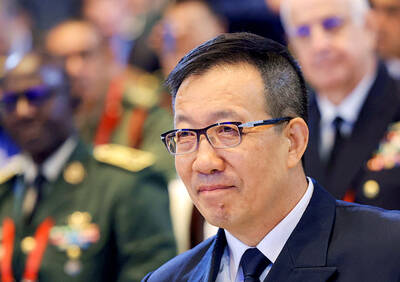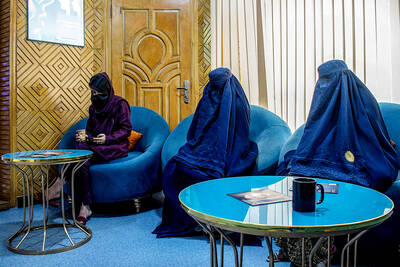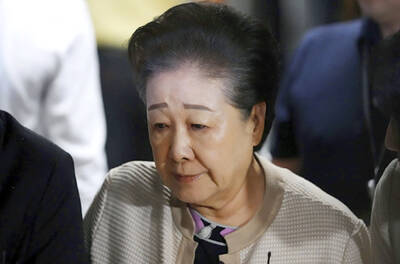While Canada’s opposition Liberals are threatening to trigger a new election to protest against government handling of the economic crisis, there is no guarantee Canadians will be voting any time soon.
Liberal Party leader Michael Ignatieff, buoyed by recent polling numbers, demanded on Sunday that the minority Conservative government make unemployment payments more generous to help Canadians ride out the recession.
“If the government will work with me, then we’ll get it done. If they won’t. Then we’ll have to have an election,” he said after a party conference confirmed him as the new leader.
But analysts said Ignatieff’s tough words were more of a warning to Canadian Prime Minister Stephen Harper than a genuine declaration that he is ready to bring down the Conservative government.
They pointed to a host of reasons why an election might not happen soon.
First, Liberal support, though higher, is still not strong enough to guarantee even a narrow victory. And to bring the Conservatives down the Liberals need the support of both the other opposition parties in the House of Commons, neither of which may be in the mood to co-operate.
Nik Nanos, head of the Nanos Research polling firm, said an election now — Canada’s fourth in five years — would “really be a crap shoot for either one of the main parties.”
Two polls over the weekend put public support for the Liberals at 36 percent compared with 33 percent for the Conservatives — a gap far too small to ensure even a narrow minority government.
“If anyone was looking at the polling numbers ... and the general political environment, the conclusion would be that this isn’t a good time to have an election. There are too many risks for all the parties,” Nanos said.
Ignatieff became Liberal leader last December, after the party was humiliated in the October election. One reason for the poor performance was that, under then leader Stephane Dion, the party had regularly backed Harper on confidence votes rather than risk going to the polls.
This consistent support allowed the opposition New Democrats and the Bloc Quebecois to portray the Liberals as weak, further damaging the party’s standing.
By making it clear he is no longer ready to automatically back the government, Ignatieff is forcing the other two parties to decide whether they want to keep Harper in power.
“They seem to be getting cozy with the Conservatives. I sometimes wonder whether there’s a little coalition forming there. Mr. Harper is fighting for his political survival,” Ignatieff told CTV television on Sunday.
Polls show popular support is slipping for both the New Democrats and the Bloc, which only fields candidates in Francophone Quebec.
Richard Schultz, a professor of politics at Montreal’s McGill University, said this means a quick vote is unlikely.
“He [Ignatieff] has turned the tables on the New Democrats and the Bloc. They don’t want an election, so they’re going to be the ones forced to support the government in some way,” he said.

BEIJING FORUM: ‘So-called freedom of navigation advocated by certain countries outside the region challenges the norms of international relations,’ the minister said Chinese Minister of National Defense Dong Jun (董軍) yesterday denounced “hegemonic logic and acts of bullying” during remarks at a Beijing forum that were full of thinly veiled references to the US. Organizers said that about 1,800 representatives from 100 countries, including political, military and academic leaders, were in Beijing for the Xiangshan Forum. The three-day event comes as China presents itself as a mediator of fraught global issues including the wars in Ukraine and Gaza. Addressing attendees at the opening ceremony, Dong warned of “new threats and challenges” now facing world peace. “While the themes of the times — peace and development —

Decked out with fake crystal chandeliers and velvet sofas, cosmetic surgery clinics in Afghanistan’s capital are a world away from the austerity of Taliban rule, where Botox, lip filler and hair transplants reign. Despite the Taliban authorities’ strict theocratic rule, and prevailing conservatism and poverty in Afghanistan, the 20 or so clinics in Kabul have flourished since the end of decades of war in the country. Foreign doctors, especially from Turkey, travel to Kabul to train Afghans, who equally undertake internships in Istanbul, while equipment is imported from Asia or Europe. In the waiting rooms, the clientele is often well-off and includes men

BRIBERY ALLEGATIONS: A prosecutor said they considered the risk of Hak-ja Han tampering with evidence to be very high, which led them to seek the warrant South Korean prosecutors yesterday requested an arrest warrant for the leader of the Unification Church, Hak-ja Han, on allegations of bribery linked to the country’s former first lady and incitement to destroy evidence. The move came a day after the 82-year-old was questioned over her alleged role in bribing former first lady Kim Keon-hee and a lawmaker. Founded in 1954 by her late husband, Sun Myung Moon, the Unification Church has long been the subject of controversy and criticism, with its teachings centered on Moon’s role as the “second coming” and its mass weddings. Followers are derisively referred to as “Moonies.” However, the church’s

COMFORT WOMEN CLASH: Japan has strongly rejected South Korean court rulings ordering the government to provide reparations to Korean victims of sexual slavery The Japanese government yesterday defended its stance on wartime sexual slavery and described South Korean court rulings ordering Japanese compensation as violations of international law, after UN investigators criticized Tokyo for failing to ensure truth-finding and reparations for the victims. In its own response to UN human rights rapporteurs, South Korea called on Japan to “squarely face up to our painful history” and cited how Tokyo’s refusal to comply with court orders have denied the victims payment. The statements underscored how the two Asian US allies still hold key differences on the issue, even as they pause their on-and-off disputes over historical